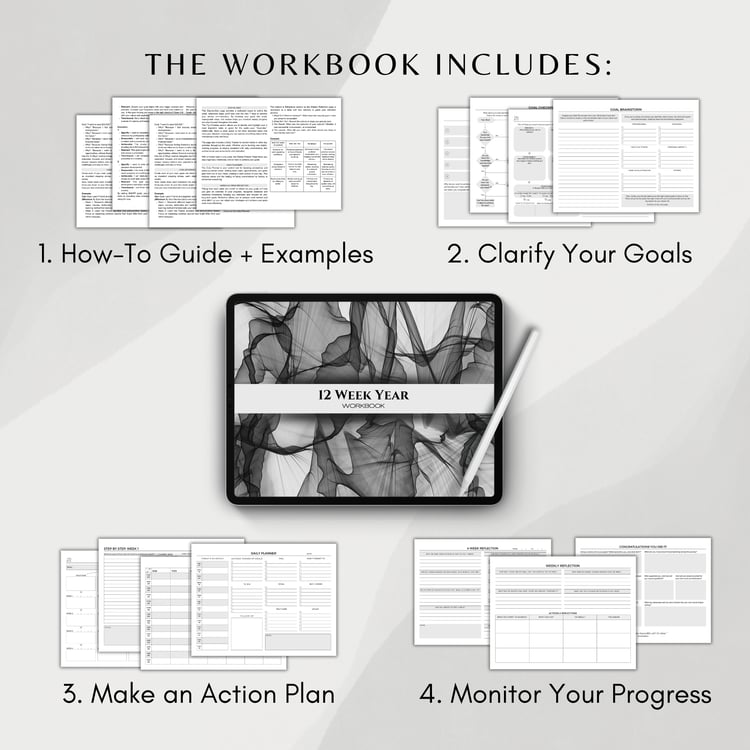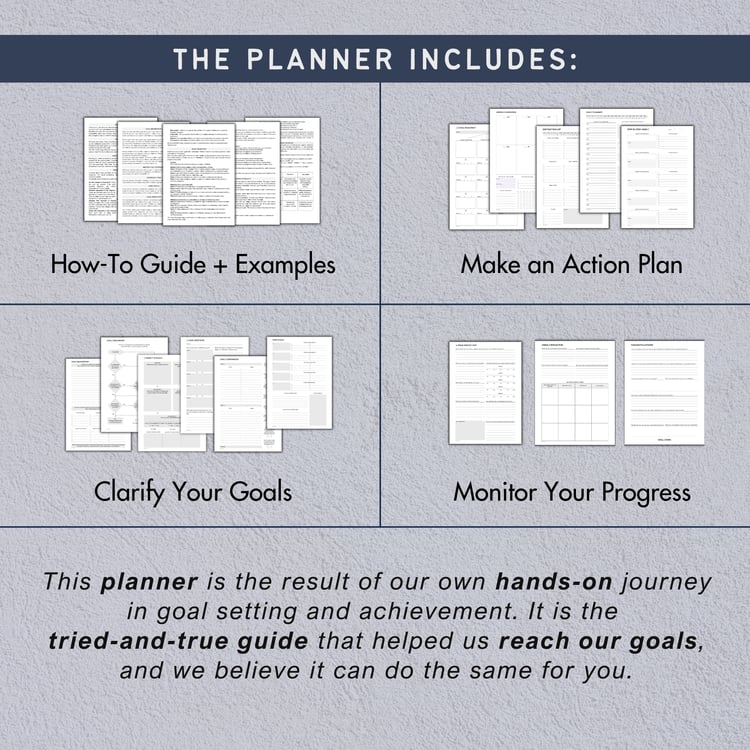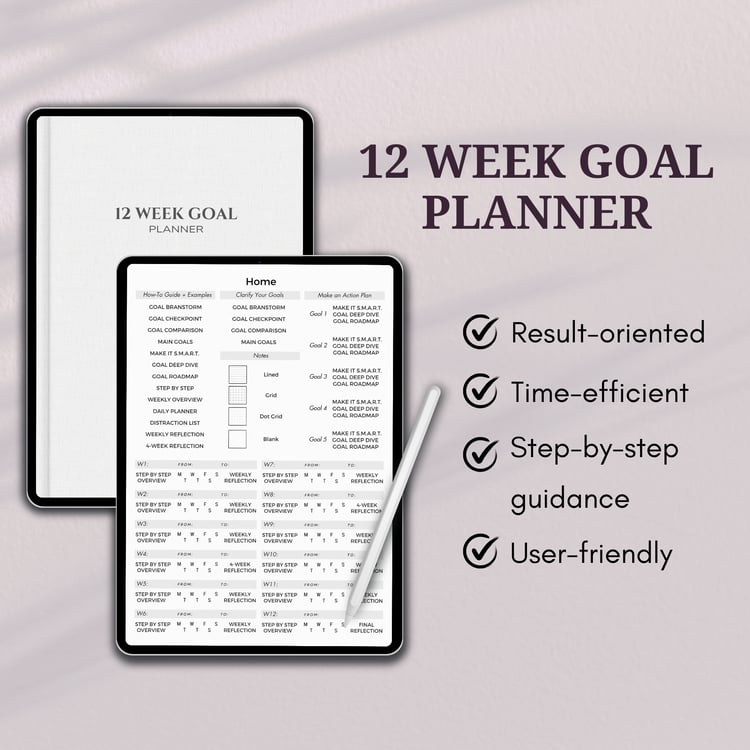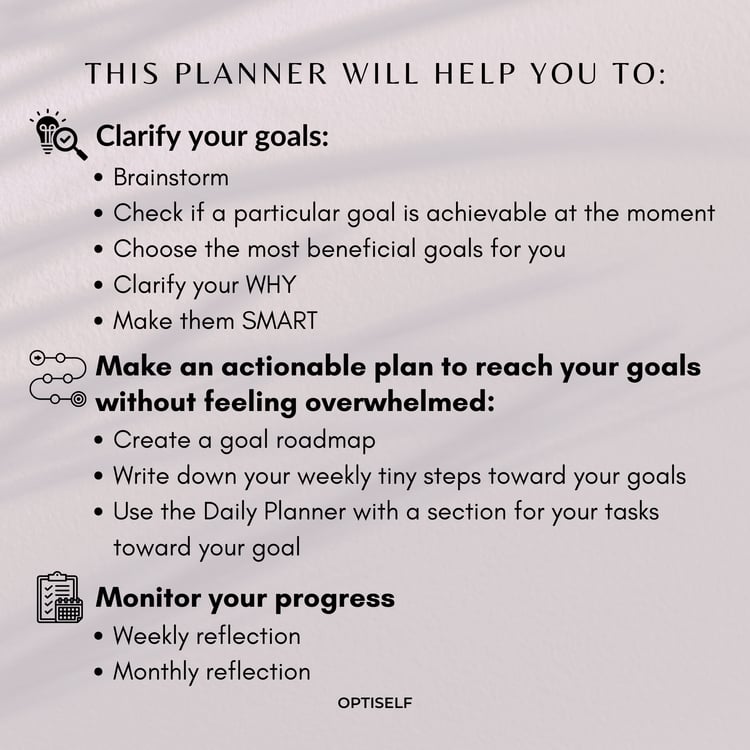Have you ever wondered what makes people successful? Is it pure luck, or is there a secret sauce involved? Well, the truth is there's no magic potion, but there are some key ingredients you can mix together to create your own recipe for an awesome life.
Whether you dream of financial freedom, career success, or personal growth, the key is in your mindset and daily routines. In this article, we’ll break down the strategies used by highly successful people and show you how to apply them in your own life.
1. Have a Clear Vision – Know Where You’re Going

Imagine trying to drive somewhere without a map or GPS. You’d probably get lost, right? The same thing happens in life. A clear vision is like a roadmap—it helps you know where you're headed and keeps you focused on reaching your goals. When you know what your goals are and why they are important, you can focus your efforts and energy effectively. Your vision acts as a roadmap, guiding you through the steps needed to reach your destination.
Example: Walt Disney
Walt Disney had a vision of creating a world of imagination and storytelling that would captivate audiences of all ages. When he first pitched the idea of Disneyland, many people doubted him, but he remained committed to his dream. He meticulously planned every detail, and today, Disney is one of the most influential entertainment empires in the world.
Steps to Create Your Vision:
- Imagine your dream life. What does success look like to you? A fulfilling career? Financial freedom? Happy relationships? Picture it in detail.
- Write it down. Be specific! Instead of “I want to be rich,” try “I want to build a successful online business that earns $100,000 per year.”
- Create a vision board. Collect images and words that represent your dreams and keep them somewhere visible.
- Remind yourself daily. Read your vision statement or look at your vision board every day to stay motivated.
2. Build Discipline – Do It Even When You Don’t Feel Like It
Let's face it, there will be days you'd rather just stay in bed. But that's where discipline comes in. It's about training yourself to do what needs to be done, even when you don't feel like it. Think of it as a muscle – the more you exercise it, the stronger it gets. This means sticking to your goals even when it's tough. Consistent effort, even on difficult days, builds momentum and brings you closer to your goals. Imagine Thomas Edison giving up on the light bulb after the first failed attempt!
Example: Kobe Bryant
Kobe Bryant was known for his relentless discipline and work ethic. He would wake up at 4 AM to practice, long before his teammates arrived. Even after winning championships, he continued training harder than ever. His commitment to constant improvement made him one of the greatest basketball players of all time.
Steps to Build Discipline:
- Set small daily goals. Instead of saying, “I’ll exercise more,” commit to “I’ll do 10 push-ups every morning.”
- Create habits. Doing something at the same time each day makes it easier. For example, always read for 15 minutes before bed.
- Hold yourself accountable. Use a journal or app to track your progress.
- Reward yourself. Celebrate small wins to stay motivated!
3. Think Differently – Creativity Leads to Success

Innovation and progress are driven by creative thinking. We wouldn’t have electricity, computers, or cars if some people hadn’t dared to experiment and challenge the status quo. Don’t be afraid to think differently and explore new ideas. Creativity and innovation are key drivers of progress and success.
Example: Sara Blakely (Founder of Spanx)
Sara Blakely revolutionized the fashion industry by creating Spanx. She thought differently about women’s undergarments and saw an opportunity where no one else did. Even when manufacturers rejected her idea, she persisted. Today, she is a billionaire, all because she dared to think outside the box.
Steps to Think Creatively:
- Ask “What if?” Instead of accepting things as they are, challenge them. What if there was a better way?
- Surround yourself with creative people. Being around innovative thinkers can spark new ideas.
- Try new experiences. Travel, read diverse books, or learn new skills to expand your thinking.
- Welcome mistakes. Some of the best ideas come from failed experiments!

If you struggle with setting and achieving your goals, check out our 12 Week Year Planner, which is based on our personal journey of goal-setting and achievement. It’s the tool that helped us succeed, and we believe it can help you too.
4. Embrace Challenges – Step Out of Your Comfort Zone
Sometimes the most rewarding experiences happen when we take a leap of faith. Stepping outside your comfort zone could mean trying out for a new sports team, joining a club, or even giving a presentation in front of many people. Sure, it might be scary at first, but that's where the magic happens! You might surprise yourself with what you can achieve.
Example: Richard Branson
Richard Branson, the founder of Virgin Group, consistently takes risks and steps outside his comfort zone. Whether it was starting an airline with no experience in aviation or attempting world records in hot air balloons, he thrives on challenges. His willingness to embrace the unknown has made him a global business icon.
Steps to Overcome Challenges:
- Reframe failure as a stepping stone. Instead of thinking, “I failed,” tell yourself, “This is a lesson that will make me stronger.”
- Take small risks first. Start by stepping outside your comfort zone in small ways—speak up in a meeting, try a new hobby, or introduce yourself to someone new.
- Surround yourself with motivators. Find people who push you to be your best, whether it’s a mentor, coach, or supportive friends.
- Focus on solutions, not problems. When a challenge arises, instead of dwelling on the issue, ask yourself, “What can I do to fix this?”
- Keep a challenge journal. Write down your struggles and how you overcame them—this will remind you of your strength when new obstacles arise.
5. Keep Your Promises – Build Self-Trust

Imagine saying you'll start exercising, but then never doing it. Over time, you start to lose trust in yourself. Keeping the promises you make to yourself is all about building trust and self-respect. When you follow through on your commitments, you know you can rely on yourself, which is key to achieving anything big.
Example: Dwayne "The Rock" Johnson
Dwayne Johnson promised himself he would make something of his life after struggling through poverty and rejection. He committed to his goals in wrestling, acting, and business, always following through with his promises to himself and his audience. His consistency and reliability turned him into one of the most successful entertainers in the world.
Steps to Keep Promises:
- Write down your promises. Keeping a checklist or journal helps keep you accountable.
- Set reminders. Use alarms or sticky notes to remind yourself of your commitments.
- Follow through, no matter what. Avoid excuses and make your promises a top priority.
- Reflect on the impact. Notice how keeping your word strengthens trust, confidence, and reliability in both personal and professional life.
- Celebrate keeping your word. Recognize your efforts and reward yourself for being reliable and trustworthy.
6. Delay Gratification – Focus on the Long-Term
Sometimes, instant gratification can be tempting. That extra slice of cake might seem like a good idea now, but it could derail your fitness goals. Delayed gratification is about focusing on long-term rewards rather than short-term pleasures. It takes discipline, but it's worth it in the end.Success takes time. Instant pleasure (like binge-watching TV instead of working) can keep you from reaching your goals.
Example: Warren Buffett
Warren Buffett, one of the richest investors in the world, is a master of delayed gratification. Instead of chasing quick profits, he focused on long-term investments, patiently allowing his wealth to grow over decades. By resisting the urge for short-term gains, he built a financial empire that continues to thrive today.
Steps to Practice Delayed Gratification:
- Visualize your future success. Imagine how good it will feel when you reach your goal.
- Make hard things fun. Turn tasks into challenges or games to stay motivated.
- Use the 10-minute rule. If you're tempted by distractions, tell yourself to wait 10 minutes. Often, the urge passes.
- Create a reward system. Treat yourself when you hit milestones—just make sure the reward doesn’t undo your progress.
7. Become Your Best Self – Learn From Mistakes

Mistakes are valuable learning opportunities. If you don’t learn from them, you’re bound to repeat them. Don’t dwell on the past; instead, use those experiences to become a better version of yourself. Reflect on what went wrong, identify lessons learned, and apply that knowledge moving forward.
Example: Michael Jordan
Michael Jordan, often regarded as the greatest basketball player of all time, wasn't always a superstar. In high school, he was cut from the varsity basketball team—a devastating blow for a young athlete. Instead of giving up, he used the rejection as motivation. He trained harder, refined his skills, and eventually became a six-time NBA champion. Jordan has famously said, “I have failed over and over and over again in my life. And that is why I succeed.” His story proves that mistakes and failures are stepping stones to greatness if you learn from them and keep pushing forward.
Steps to Turn Mistakes into Lessons:
- Analyze what went wrong. Look at the situation objectively and identify the cause of the mistake.
- Take responsibility. Acknowledge what you could have done differently instead of blaming others.
- Find solutions. Brainstorm ways to prevent similar mistakes in the future.
- Apply what you’ve learned. Adjust your strategy to improve future efforts.
- Stay positive. Use mistakes as stepping stones to personal growth.
8. Focus on What You Can Control
Sometimes life throws curveballs. You can't control the weather, or how other people act. But you can control your own actions, attitude, and choices. So why waste energy on things you can't change? Focus on the things that make a difference, and watch your life transform! his mindset shift can make a significant difference in your approach to challenges.
Example: Viktor Frankl
Viktor Frankl, a Holocaust survivor and author of Man’s Search for Meaning, endured unimaginable hardships in concentration camps. He realized that while he couldn’t control his environment, he could control his response to it. By focusing on his mindset and purpose, he survived and later helped millions of people find meaning in their own lives.
Steps to Manage Control:
- Identify what’s within your power. Make a list of what you can control and let go of what you can’t.
- Take action on what matters. Prioritize tasks that will have the biggest impact on your goals and well-being.
- Practice mindfulness. Stay present by using meditation, deep breathing, or journaling to clear your mind and reduce anxiety about the unknown.
- Adapt to change. Life is unpredictable, but successful people learn to adjust and make the best of every situation.
- Develop problem-solving skills. When faced with challenges, look for solutions rather than dwelling on obstacles.
9. Never Stop Learning – Stay Ahead

The world is constantly changing, and so should you! Keep your mind sharp by developing new skills, staying updated on the latest trends, and reading new things. This will keep you on top of your game and open doors to exciting opportunities.
Example: Bill Gates
Bill Gates, despite being one of the richest men in the world, is a lifelong learner. He reads around 50 books a year and constantly seeks new knowledge. His ability to stay ahead of industry trends and adapt to new technologies is what helped Microsoft remain a tech giant for decades.
Steps to Keep Learning:
- Take online courses. Many platforms offer free and affordable learning.
- Read daily. Books, articles, and industry news keep you sharp.
- Attend workshops. Seminars and networking events can boost your knowledge.
No matter where you are right now, you have the power to shape your future. Success isn’t about being perfect—it’s about learning, growing, and staying committed to your goals. Take what you’ve learned from this article and start making small, meaningful changes in your life. Stay focused, keep pushing forward, and never stop believing in yourself. Your success story is just beginning!







